ASARECA, IWMI Pilot Policy Analysis Tool on Uganda’s National Agricultural Extension Policy
By Ben Moses Ilakut
KAMPALA, UGANDA: ASARECA has facilitated a thorough analysis of Uganda’s National Agricultural Extension Policy (NAEP), which has highlighted the urgent need to improve implementation of the NAEP and recommended scaling of the ASARECA Policy Manager Tool to analyze Government agricultural policies and service delivery programmes that affect farmers in all the ASARECA member countries.
In a workshop to pilot ASARECA’s Policy Manager Tool through joint analysis of Uganda’s NAEP, participants drawn from key sectors that influence agricultural transformation observed that the Tool is an innovative solution which has stimulated discussion on the relevance Uganda’s Extension System.
Participants drawn from critical sectors
The discussions on November 26-28 at Golden Tulip Kampala Hotel, highlighted areas for improvement in both Uganda’s NAEP and the ASARECA Policy Manager Tool. The workshop converged 30 participants from the Ministry of Agriculture, Animal Industry and Fisheries (MAAIF)—Uganda, National Agricultural Research Organization (NARO-Uganda), Uganda National Farmers’ Federation (UNFFE), selected District Local Governments (Wakiso and Mukono), Office of the Prime Minister, Makerere University, IWMI, and ASARECA. It was facilitated by ASARECA and key policymakers from MAAIF who delivered guiding presentations on the tool and on implementation of the NAEP, and selected Policy implementers, at District Local Governments, who presented on implementation success and challenges at the grassroots level.
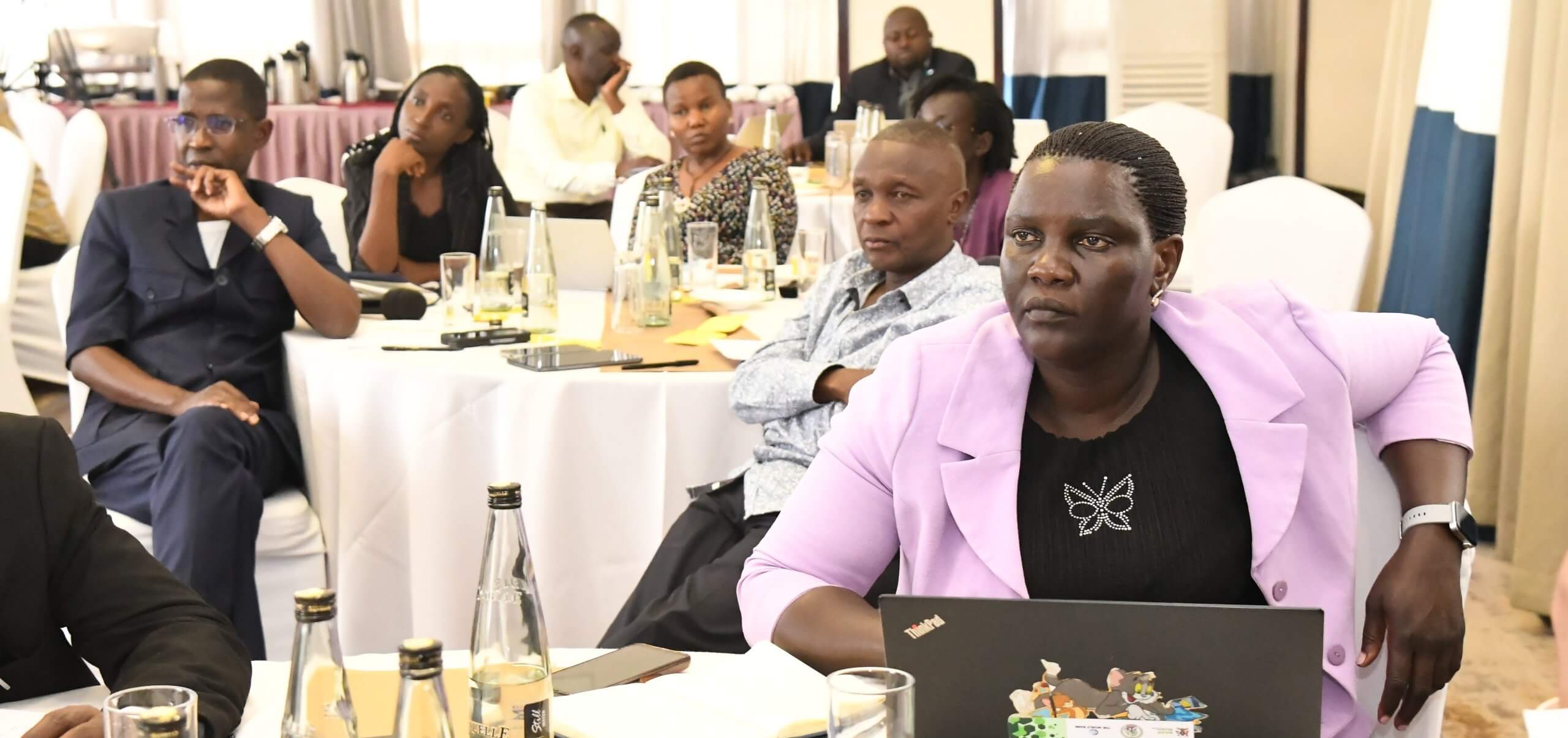
Ministry praises ASARECA
Officiating at the workshop, the Commissioner for Crop Inspection and Certification at MAAIF, Dr. Paul Mwambu noted, “The workshop provides clarity on successes and challenges in our extension system, how to bridge gaps in policy analysis, how to address gender equity, and tracking implementation progress.”
Dr. Mwambu extolled ASARECA’s initiatives aimed at improving policy formulation and implementation in Uganda and other Member States.
“This Tool provides decision-makers with pragmatic solutions to monitor and refine policies to address challenges affecting agriculture including delivery of Agricultural Extension and Advisory Services,” he noted. “It provides us an opportunity to align Uganda’s agricultural extension and innovation goals with regional and international best practices.”
About Uganda’s Extension Policy
Uganda’s NAEP was developed in 2016 and focuses on delivery of extension services to farmers to improve productivity, incomes, and livelihoods. However, it is facing a series of challenges in achieving its full potential, and in many cases has been overtaken by events.
Some of the challenges in implementation of the Policy, according to Dr. Mwambu, include: inadequate funding to agricultural extension and advisory services; poor coordination between state and non-state actors; limited awareness about the policy and its benefits which is a disincentive to farmers to invest in extension services; poor prediction of natural calamities; negative attitude to the extension system; inadequate staffing; and limited monitoring. To date, Uganda has only 4,000 out of the target 9,000 extension staff.
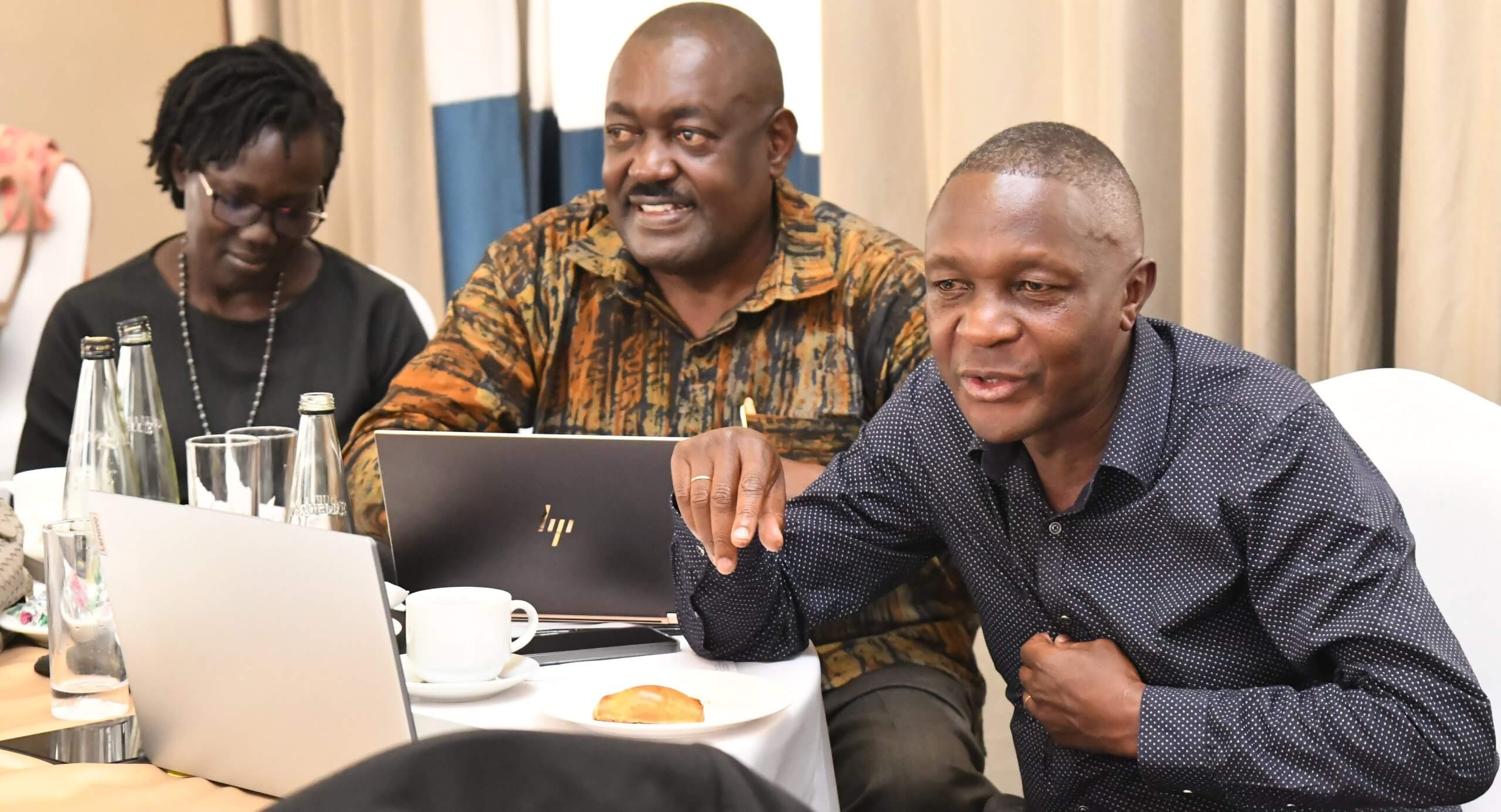
Partnership key to policy implementation
“ASARECA’s leadership in fostering Agricultural Research for Development (AR4D) in Eastern and Central Africa is exemplary, especially through harnessing partnerships with IWMI and CGIAR’s Ukama Ustawi initiative towards achieving sustainable development goals,” Dr. Mwambu observed. “This tool’s focus on offering a policy practice index and comparative analysis ensures that policies are not only well-formulated but also effectively implemented and benchmarked against other ASARECA Member States. This encourages learning, adaptation, and acceleration of agricultural transformation across member countries.”
The workshop was organized by ASARECA under the auspices of IWMI, representing CGIAR’s regional integrated initiative on Diversification for Resilient Agrifood Systems in East and Southern Africa (Ukama Ustawi).
Fostering programme monitoring and impact
According to Ms. Julian Barungi the Programme Officer for Policy at ASARECA, the ASARECA Policy Manager Tool was developed in 2023 after a capacity gap assessment report commissioned by ASARECA pointed out the need for regular policy analysis and implementation. ASARECA then developed a capacity development plan to address key recommendations of the Report. The tool is one of the key actions to address the needs that stakeholder highlighted.
“Policy tracking tools can be useful in monitoring, analyzing, and reporting on policy change and success. By using this tool, policy makers are adequately exposed to appreciate what a policy can achieve even before they develop it,” said Barungi. “Some of the policies that are often not well implemented fail because of existing gaps or misconceptions during formulation.”
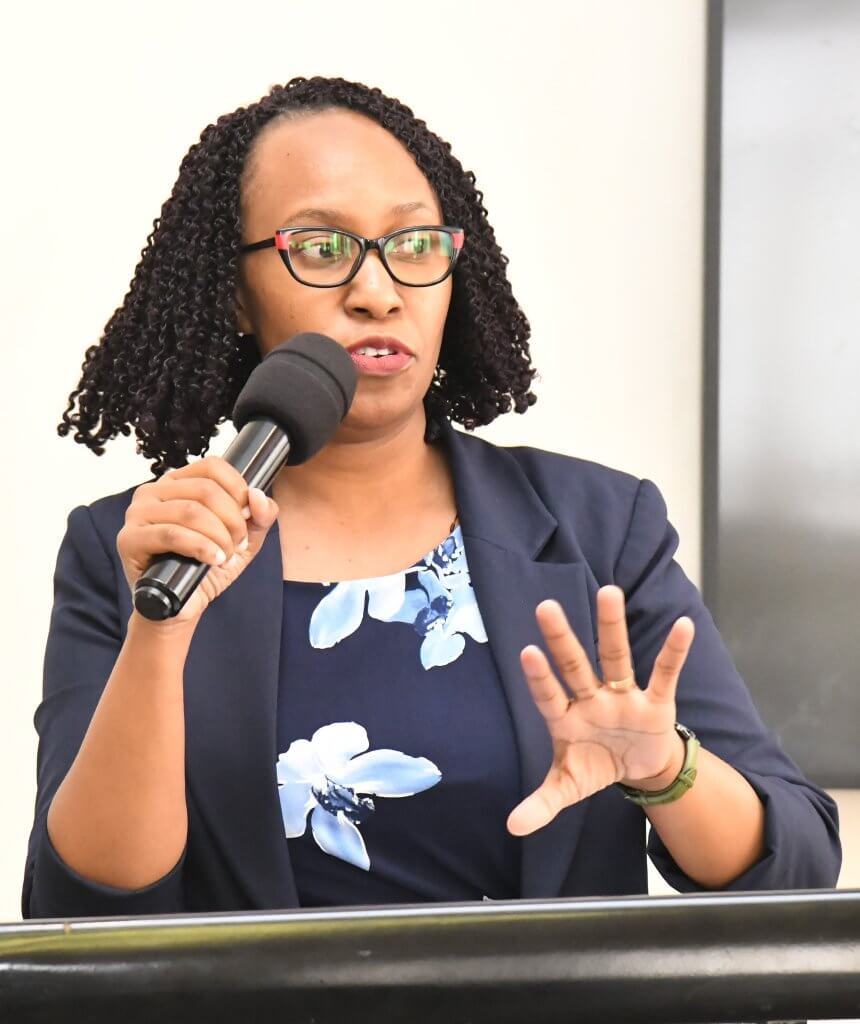
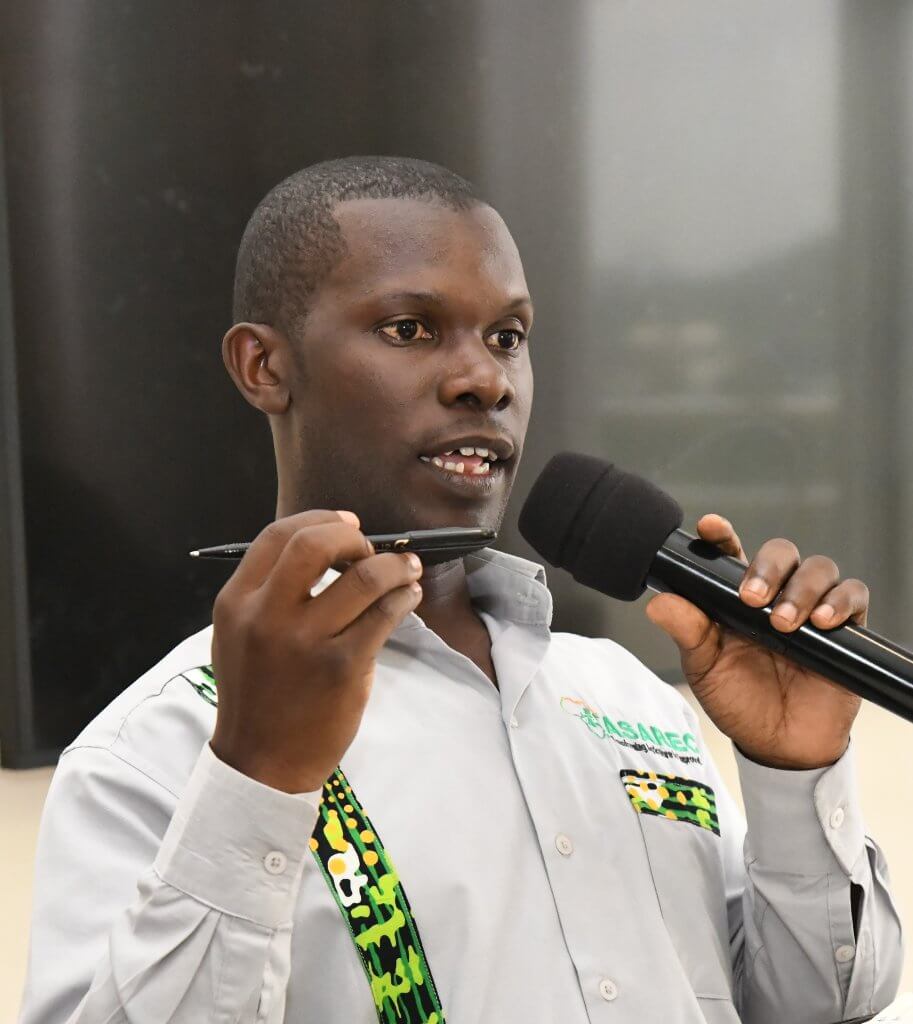
Fostering accountability through monitoring
Barungi noted that the tool is meant to be used by key stakeholders in the ministries of Agriculture, the National Agriculture Research Institutes, the Agricultural Extension Agencies, and the Private Sector to conduct self-assessment on how well they are implementing the policies.
“For us as an Intergovernmental Organization, the Tool offers a policy practice index and score that can guide countries to decide on what their agriculture-related policies must consider to succeed. It also serves as an advocacy facility with elements of mutual accountability amongst Member States,” said Ms. Barungi. “We urge policy makers and experts to adopt this Tool and use it for self-assessment and track the changes and relevance of policies.
About the ASARECA policy Manager tool
Mr. Achilley Kiwanuka Ssebwana, Programme Officer Information Systems at ASARECA who developed the tool, said: “The tool helps to monitor implementation of policies affecting the delivery agricultural research, extension, and outreach services. Monitoring the value chain of agricultural extension service delivery enforces efficiency which is good news for the farmers who are the ultimate beneficiaries.
The tool was developed in a participatory manner with key policy experts from member countries. It was reviewed and validated by various agriculture stakeholders on 30 August 2023 in Nairobi, Kenya, with IWMI’s support.
The Kampala workshop is a step in the journey to scale it down to target users. During the workshop, the participants evaluated the Tool to assess the performance of Uganda’s NAEP. During discussions, it emerged that there is need to review and reform the Policy, which was developed back in 2016, but is undergoing implementation under a context of fast-paced changes in the Agricultural Research for Development eco-system. Stakeholders pointed out multiple emerging issues such as climate change, pests and diseases, and the current discourse around food systems as some of the issues that urgently need to be integrated into the policy. Poor coordination in implementation of the NAEP also remains a major challenge.
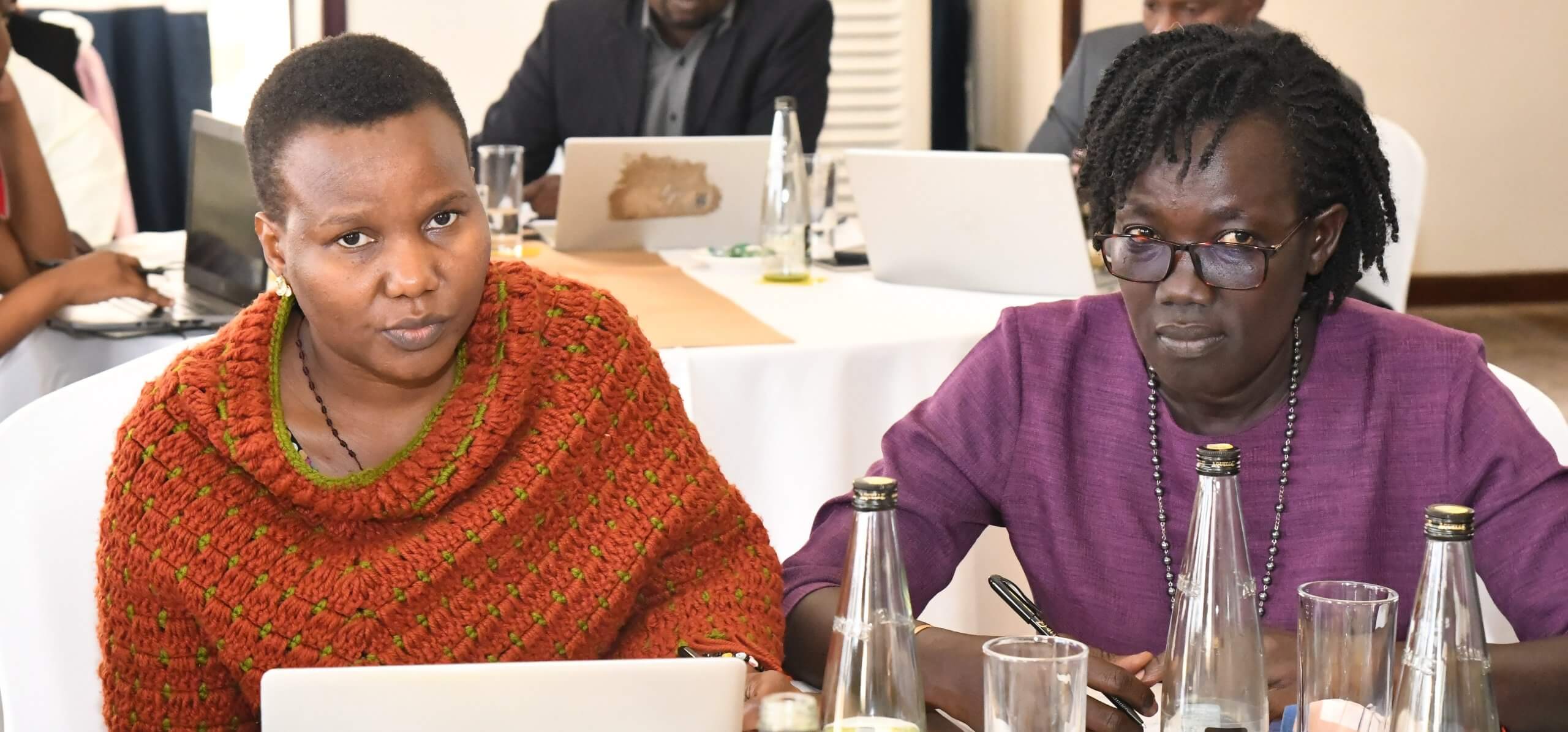
Reviewing indicators for successful functionality
The meeting reviewed and refined the indicators for assessing the effectiveness of the policy process and the actual performance of the Tool and refined them. Some of the indicators reviewed include: The relevance of policy objectives; the extent to which the policy is addressing identified issues among target stakeholders; the effectiveness of the implementation framework of the policy; the extent of consultation and participation by relevant actors in the policy formulation process; the level of compliance of the policy with regional and international frameworks; the arrangements for coordination and implementation the policy; the effectiveness of partnerships and collaboration in policy processes; impacts of the policy and the potential of the policy to contribute to economic growth among others.
What it means to pilot a valuable tool
The Assistant Commissioner for Agricultural Extension and Skills Management—MAAIF, Dr. Jennifer Oyuru, said Uganda is excited to pilot the Tool as it provides the country the privilege to review and evaluate its functionality against the current NAEP. “As the coordinators, we are elated to put our NAEP and the ASARECA Policy Manager’s Tool side by side, to get the best out of both instruments,” she noted.
The Assistant Commissioner for Policy, MAAIF—Uganda, Mr. John Okiror, provided guidance on how to follow the generic Policy cycle to ensure the ASARECA Tool is adopted by the Member States. Among other recommendations, he highlighted the need to compare formats of national policies to ensure the tool works for all countries, ensure extension policies and the indicators address farmers’ problems.
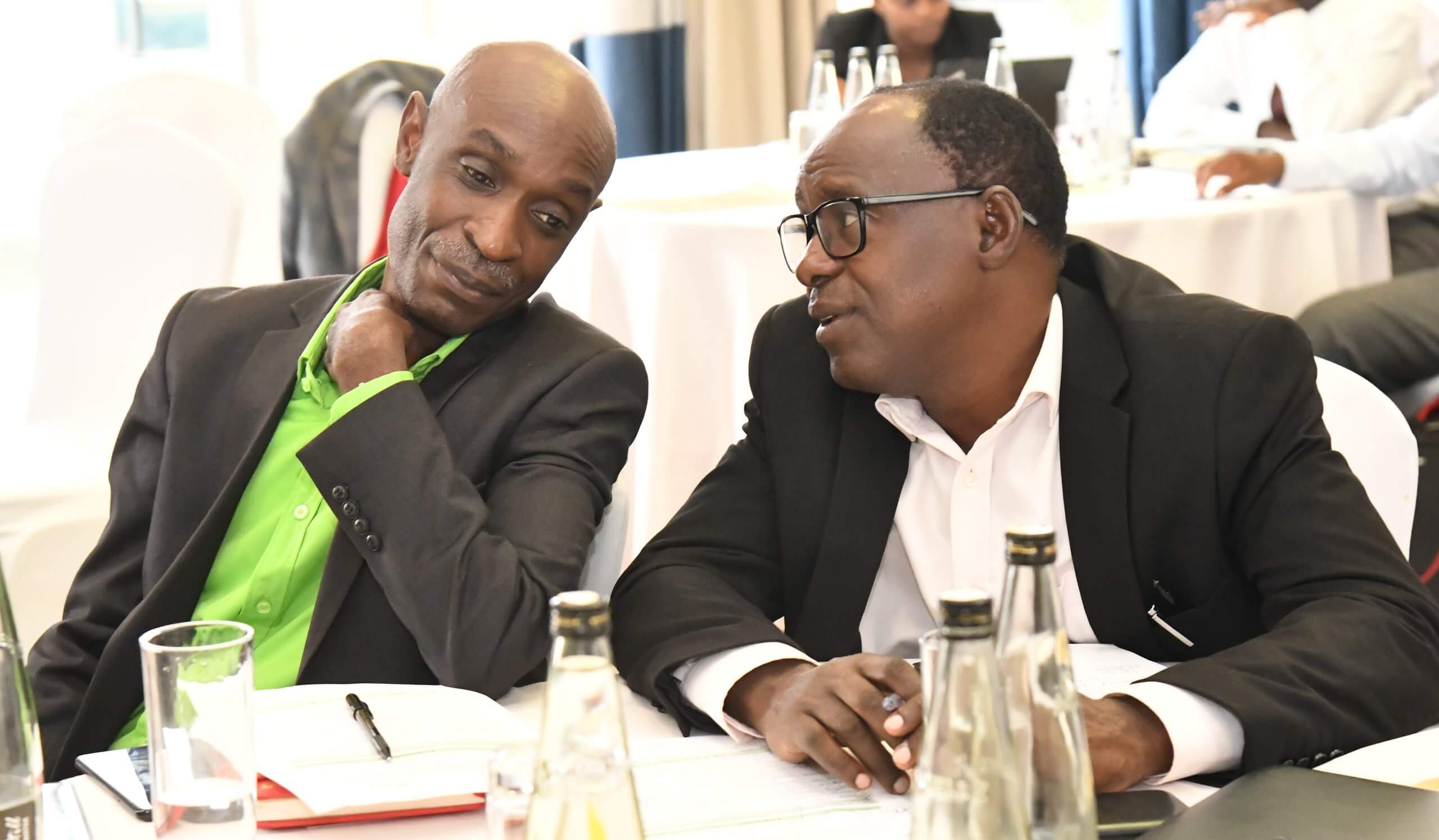
Key stakeholders’ perspectives Mr. Stephen
According to Mr. Caleb Gumisiriza, the Director for Policy at the Uganda National Farmers Federation (UNFFE), since extension is seen as the vehicle through which farmers are syndicated with technologies and advisory services, the district production departments should monitor all extension service providers, especially NGOs to ensure that the farmers get accurate information. He urged the Government to recruit and deploy key extension personnel including veterinarians, entomologists, and fisheries officers at sub-counties for adequate service delivery.
Dr. Fred Mukulu, the Mukono District Production Officer, who is also the Chairperson of District Production Officers in Uganda noted that the introduction of the Government’s rural livelihoods transformation programme, the Parish Development Model (PDM), has increased the demand for extension services. “PDM has brought in multiple enterprise groups who have been financed by Government to venture into income generating initiatives, so they need extension services,” he observed.
Mr. Michael Lubuulwa, the Wakiso District Production Officer said the farmers are interested in what the extension agents must provide to change their lives, especially in enterprises such as poultry, piggery, horticulture, and fisheries.
Recommendations for urgent attention
The Government representatives from MAAIF together with the participants agreed on key actions that need to be implemented to make Agricultural Extension work. Some of the key recommendations were:
Review of Uganda’s Extension Policy; identification of areas of interest by the youth and the private sector in the agriculture value chain; re-skilling the extension officers; benchmarking good policies and contexts which have worked and where they failed, and picking lessons; and streamlining the entire coordination of Agricultural extension services into in the Agriculture Ministry, including coordination of District Production Offices which are currently under the Ministry of Local Government; improving coordination of multi-stakeholders including the government, development partners, private sector; harmonizing development of communication and dissemination of materials; increasing funding to extension and taking keen interest in monitoring and evaluation of the sector; and introducing registers at the District Production Office of multiple actors and their activities in extension in the districts to avoid duplication of efforts.
Why the Policy Managers Tool was developed
Public policy failure is one of the critical factors responsible for the slow transformation of the agriculture sector. Absence of pragmatic decision-support tools to aid policymakers in designing and monitoring policy implementation and actions is one of the key drivers of failure. The Policy Managers’ Tool is meant to galvanize inclusive and collaborative support of agriculture sector stakeholders in creating an enabling policy environment for sustainable economic transformation.
About ASARECA and IWMI
ASARECA is an intergovernmental sub-regional organization of the National Agriculture Research Systems of fifteen countries namely Burundi, Cameroun, Central African Republic, Democratic Republic of Congo, Eritrea, Ethiopia, Kenya, Madagascar, Republic of Congo, Rwanda, Somalia, Sudan, South Sudan, Tanzania, and Uganda.
IWMI is an international research-for-development organization with offices in 15 countries and a global network of scientists operating in more than 55 countries. IWMI works with governments, policymakers, farmers, civil society, water managers, development partners, and businesses to solve water and agrifood systems problems and scale up solutions.
